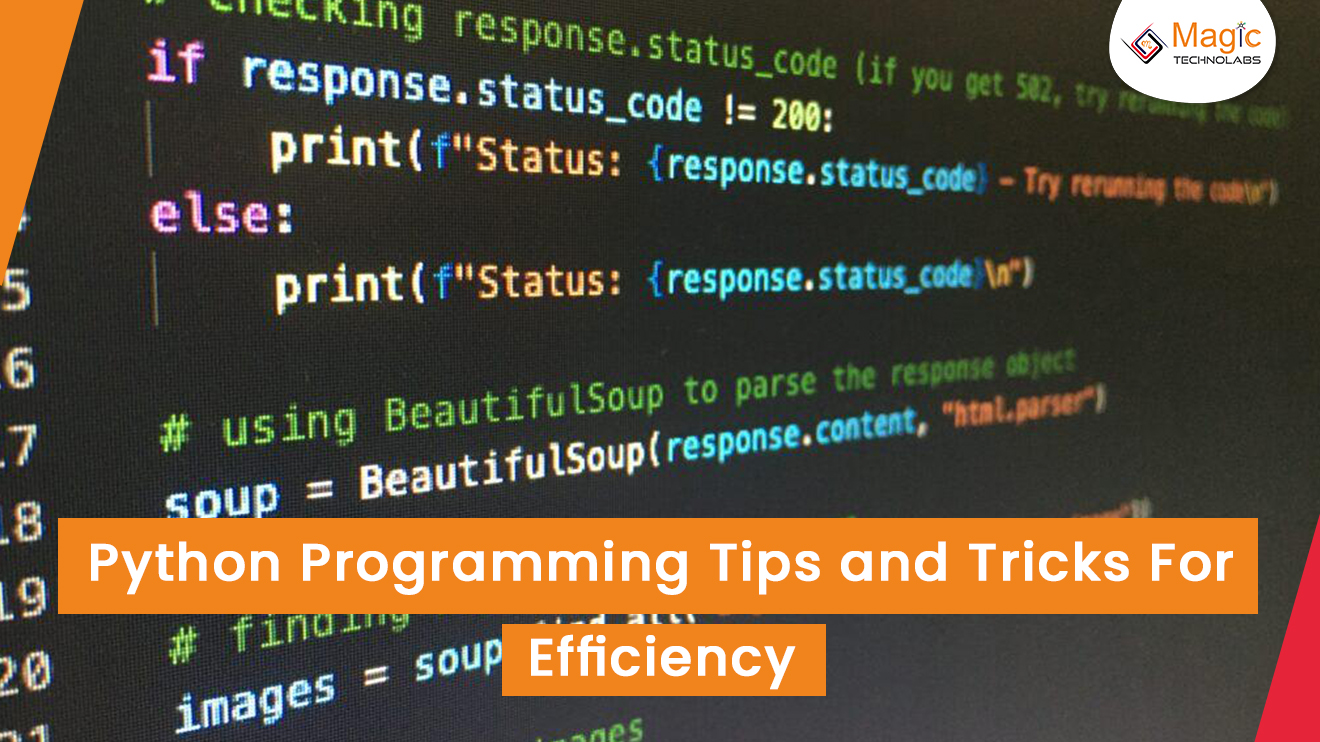Python, a versatile and powerful programming language, is beloved for its simplicity and readability. However, to make the most of Python, it's crucial to write efficient and optimized code. In this blog post, we'll explore some valuable tips and tricks that can help you enhance your Python programming efficiency.
1. Choose the Right Data Structures: Selecting the appropriate data structures is fundamental. Python offers a variety of built-in data structures like lists, sets, dictionaries, and more. Depending on your specific use case, choosing the right data structure can significantly impact your code's efficiency.
2. List Comprehensions: List comprehensions are a concise and efficient way to create lists in Python. They not only make your code more readable but also often perform faster than equivalent loops.
3. Generator Expressions: For large datasets, generator expressions are your best friend. They generate values on-the-fly, saving memory and improving performance.
4. Avoid Global Variables: Global variables can make code harder to maintain and debug. Whenever possible, use local variables within functions to improve code modularity and prevent unexpected side effects.
5. Profile Your Code: Use Python's built-in profiling tools, like cProfile, to identify bottlenecks in your code. This will help you focus your optimization efforts where they're most needed.
6. Leverage Libraries: Python's vast library ecosystem includes highly optimized modules for various tasks. Utilize libraries like NumPy for numerical operations or Pandas for data manipulation to save time and improve code performance.
7. Keep Your Code Clean: Follow PEP 8, Python's style guide, to keep your code clean and maintainable. Readable code is easier to optimize and debug.
8. Use Caching: If your code involves repetitive calculations or expensive operations, consider using caching techniques, such as memoization, to store and reuse results.
9. Proficient Error Handling: Effective error handling can prevent your code from crashing and improve its robustness. Use try...except blocks to catch and manage exceptions gracefully.
10. Regularly Update Your Skills: Python evolves, and new features and best practices emerge. Stay updated by reading blogs, books, and official documentation. Engage with the Python community to learn from others and share your knowledge.
In conclusion, Python's efficiency and readability make it an excellent choice for various applications. By implementing these tips and tricks, you can write more efficient Python code, making your projects faster and more maintainable while also enhancing your skills as a Python developer.
















